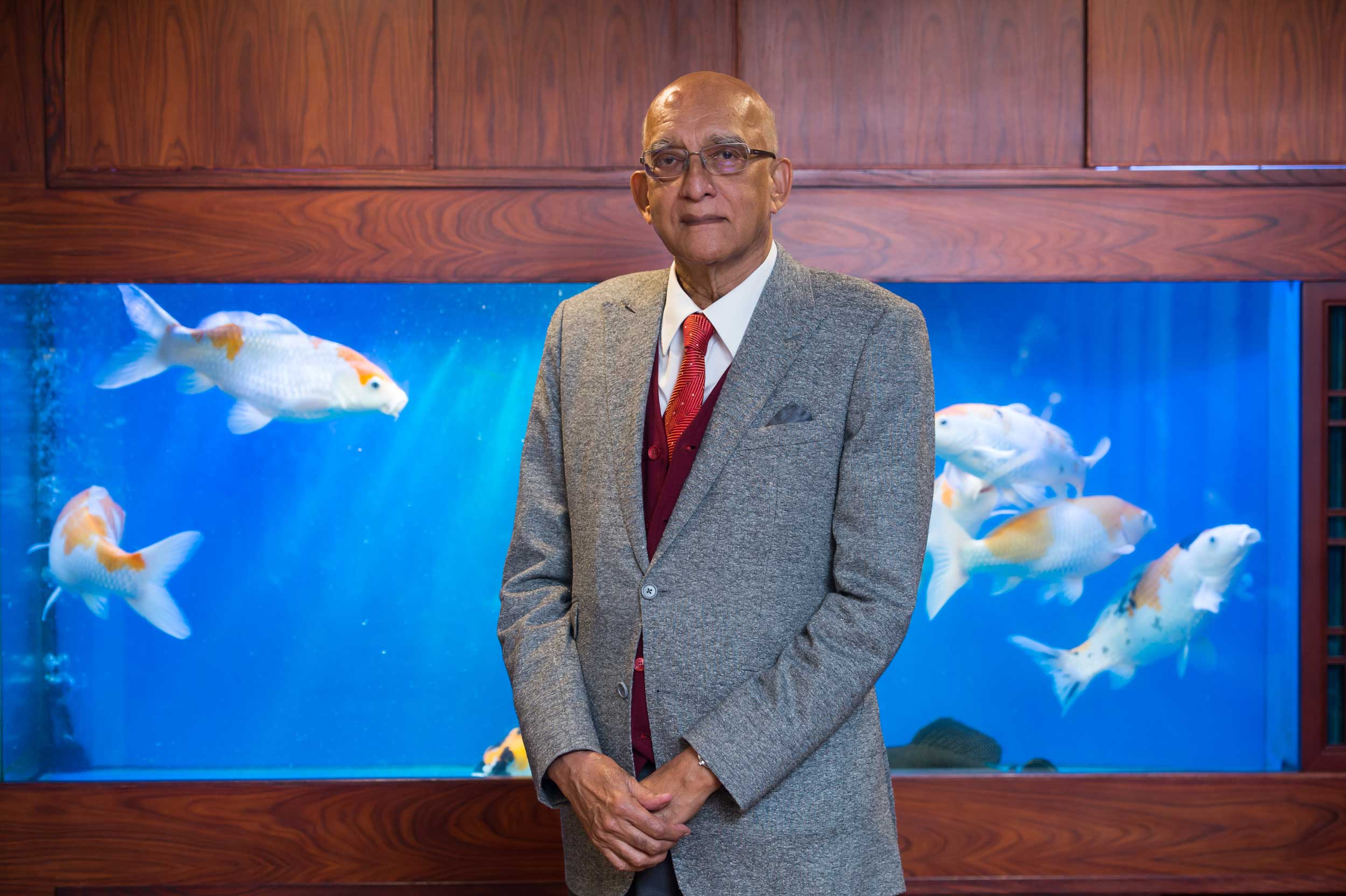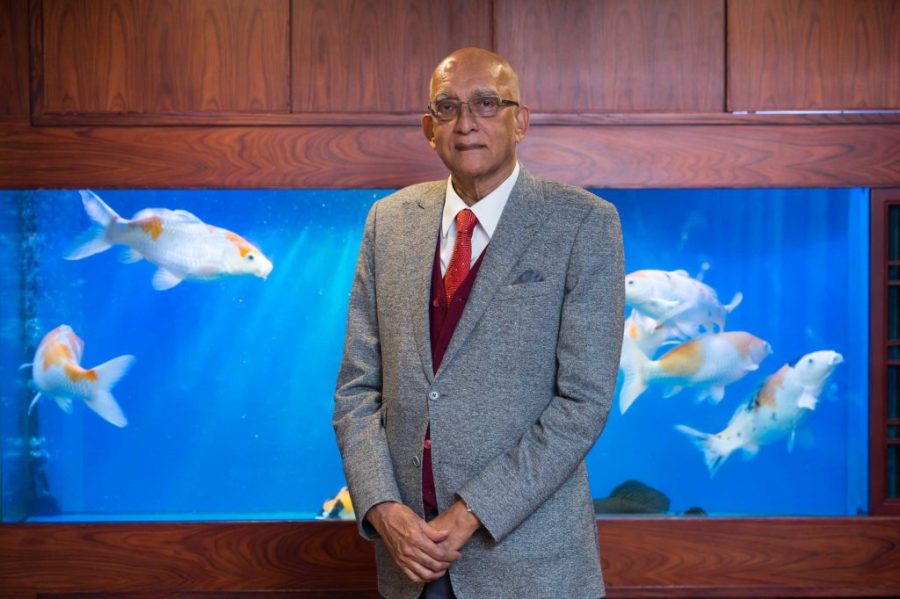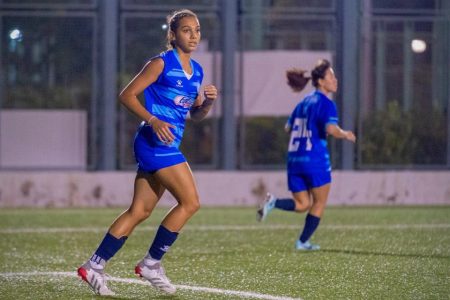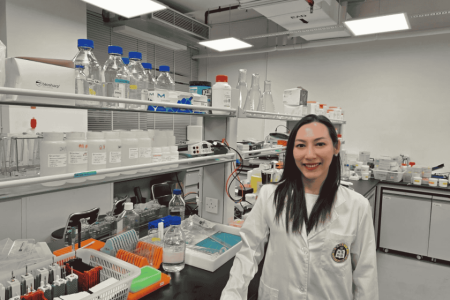Rui Cunha is founder and senior partner at C&C Lawyers and chairman of the Rui Cunha Foundation. He is fluent in Portuguese and English and familiar with Spanish, French and basic Cantonese.
Born 2 July 1941 in Mumbai, India to a Catholic family, originally from Portuguese India, Cunha grew up listening to fado, going to school and attending daily Mass. At home Portuguese was the mother language and it was also at home that he “received all the ingredients from the Portuguese culture and heritage.” After finishing his elementary education in Damão, he moved to Goa to attend high school, taking the opportunity to study Portuguese literature more in-depth. Before his father died in 1956 he told Cunha that he wanted him to follow the family tradition of working in law and so, in September 1958, he arrived at Lisbon University’s Law Faculty to begin his studies.
By his own character, Cunha became fully engaged and dedicated to completing his law degree, although he wasn’t clear whether he would opt for a future as a conservative magistrate or liberal lawyer.
While at university, Cunha’s life was turned upside down when the annexation of Goa, Damão and Diu by the Indian Union took place in December 1961. Suddenly he was unable to receive support from his family and had to fend for himself financially. He took an office job at the Social Security Service in mid-1962, here he was confined to a dimly lit room for hours, writing records into a huge book.
In the third year of his studies Cunha faced another blow. Throwing himself into his studies, and his new passion of badminton, after a time Cunha became unwell and was diagnosed with liquid in the lungs. His life was put on hold while he recuperated, and when finally fit and well, he had to restart his third academic year after losing 1 year of academic study.
When back to full health, Cunha took up a new hobby and enrolled in a photography and filming course, an area he had always found intriguing. In need of more money to support his studies, he found a job as a production director’s assistant at the Portuguese TV station Rádio e Televisão de Portugal (RTP). Television occupied his nights, law studies his days. “It went from a simple occupation gradually to a serious passion, but I continued to study until, at the start of the fifth year of law, a new crossroad entered my life,” he notes.
Cunha’s professionalism was so respected that he was offered a scholarship from Calouste Gulbenkian Foundation to finish his media course in Paris, yet he opted to stay at university. It was a difficult choice to make: giving up his passion in favour of a stable future career.
Upon completing his law degree in 1964 Cunha then ran for magistracy in Portugal and became deputy to the Prosecutor in Boa Hora, a criminal court in Lisbon.
“I discovered a world completely different from the one learned at university, and a passion for life in the courts,” he enthuses.
Following his father’s wishes, Cunha worked towards becoming a judge. He first took a prosecutor job for six years in the local courts. He then opted for a career in the Portuguese then colonies, working in Mozambique as a public prosecutor and then becoming prosecutor for the entire East Timor colony in 1969.
It was here that he married his Portuguese wife, Ana Maria Bravo, with whom he would have two children. It was also in East Timor that Cunha applied to become a judge, ranking first place in all the overseas candidates for the Portuguese colonies. He was free to choose where he wanted to work and opted for Angola, Moçâmedes; a city bordering Namibia.
He became a judge here in March 1971, working for two years before moving to a criminal Court in the country’s capital, Luanda, to replace a “brilliant magistrate, Dr Rodrigo Leal de Carvalho, well known in Macao.”
Cunha was a judge in the Angolan capital until the country’s independence, and would have stayed if it was not for one day in July 1975, while dining with his family, that a grenade fell just 50 meters from his house. The next day the family packed and returned to the safety of Portugal.
Cunha’s career continued to go from strength-to-strength in Portugal, but he began to feel restless and dissatisfied with his work. A chance encounter with an old friend from East Timor led to a new opportunity, when two days later, Cunha was sleeping soundly when, at four in the morning, the telephone rang.
Before long he realised he was talking to business magnate Stanley Ho. A few months later, at the age of 40, Cunha was on a plane to Macao to start a new era of his life working as a legal advisor for Stanley Ho, who until 2002, was the sole operator of Macao’s casinos.
Registering as a lawyer in Macao, Cunha worked as Ho’s legal advisor for 29 years, helping to manage his business empire in Macao both within and outside the gaming sector. At first working alone, Cunha gradually recruited more lawyers in Portugal to cope with the speed of Macao’s development.
In 1996, Cunha merged with another law firm, setting up a new company with Dr. António Correia called C&C Lawyers. Correia often returned to Portugal and so Cunha led the Macao office, also taking on the role of director for several firms in both Macao and Portugal.
All the while C&C continued to grow, and today is known as one of the territory’s leading law firms – soon to be integrated into a network of international law firms to serve both Lusophone interests as well as the relationship of Portuguese speaking countries with China.
Most recently, in 2012 Cunha created the Rui Cunha Foundation endowed with MOP 50 million, a non-profit organisation with the goal of promoting Macao’s legal system and to support philanthropic endeavours. Well-known in Macao, the foundation has regularly contributed to cultural and creative activities in the region.
“I see it as a simple way to give back to the society, in return for what Macao has given my life and career,” he notes.






